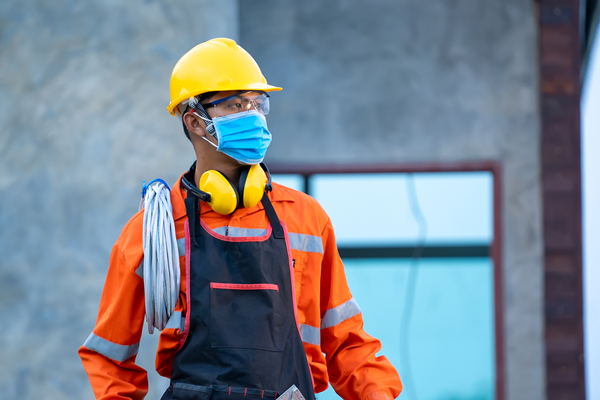Setting Yourself Apart in The New Normal: Project Completion and Roofing Cleanup
May 14, 2020
Coronavirus is changing the way the nation's more than 100,000 roofing businesses must sanitize and clean their jobsites. Roofing cleanup is important throughout the duration of the project, and particularly at the completion. The "new normal" requires new practices, protocols and employee training in order to create a safe and secure environment for workers and clients.

"The final step to protecting everyone involved in a roofing project is an efficient and safe completion process," says John Tierney, Beacon's Vice President of Commercial Sales. "Having added safety procedures to address every stage of the project, which have been implemented as a consistent process and can effectively be communicated to the client, is a great selling advantage to consider. These procedures will reassure the contractor's team that their well-being is important and give clients the reassurance that the company has taken all of their concerns into consideration," Tierney says.
Review Roofing Cleanup Policies
Operating in the new normal means understanding how to safely clean up after a roofing project while adhering to social distancing and COVID-19 sanitary measures.
Roofing contractors should first familiarize themselves with the local, state and federal guidance regarding COVID-19 in the geographic areas they serve. The National Roofing Contractors Association has rounded up a list of federal and state COVID-19 resources. Meanwhile, OSHA has recommendations for in-home repair services that apply if a job takes you indoors to look at a skylight or ventilation system.
All employers, including roofing contractors, should also assess their current cleanup policies and practices to ensure they meet the needs of the workforce and business, along with the creation of new policies. In particular, development of a protocol to limit the spread of COVID-19 is essential.
Adhere to Safe Work Practices
Make sure you and your roofing employees maintain safe work practices during roofing cleanup with the following steps:
- Minimize contact with co-workers and building occupants.
- Practice social distancing at the jobsite. Keep at least six feet away from co-workers and others, including during breaks and lunch.
- Encourage frequent handwashing for a minimum of 20 seconds, or use a hand sanitizer with at least 60% alcohol content.
- Avoid touching your face, including eyes, nose and mouth, especially before you've thoroughly washed your hands or removed your personal protection equipment (PPE).
- On top of your fall protection, welding gear or respiratory protection, consider providing PPE for virus safety, including gloves, face masks and eye protection.
- Train employees on how to properly wear, remove and dispose of face masks and PPE.
Follow Proper Cleaning Requirements
Roofing contractors will have to step up their cleaning and disinfecting requirements throughout every project, and should continue to do so during the final cleanup. The U.S. Environmental Protection Agency has a list of recommended disinfectants to use during cleanup. In addition:
- Provide each jobsite with readily accessible cleaning kits. Pack disinfectant wipes or sprays, disposable gloves, paper towels, masks and hand sanitizer.
- Implement a cleaning regime that targets frequently touched surfaces and spaces, which are most likely to transmit communicable diseases. High-touch surfaces include shared ladders, scaffolds or aerial lifts and building interiors, including access doors and stairwells.
- Wear protective gloves while using tools, clean and disinfect tools before and after use (or after sharing them with another roofer) and lock tools up overnight. Workers should be responsible for their own tools and limit sharing as much as possible.
Make sure you reinforce your cleaning procedures with the client. "You'll need to communicate how you addressed the non-porous areas on the roof, and again after your workers come off the roof," Tierney explains. "Completion of the project is just as important as selling the project. It's the final opportunity to leave a lasting impression with the client. So, having safe and efficient clean-up procedures will not just leave the client with a feeling of professional workmanship, but allow the contractor to get a final walk-through agreement for payment much faster."